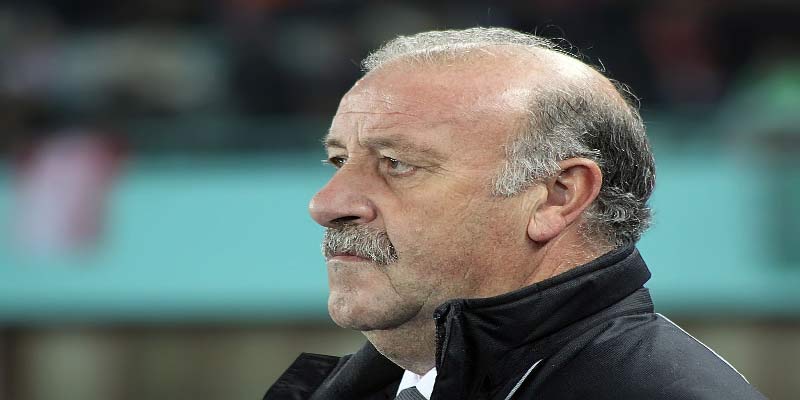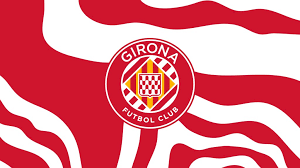
Vicente del Bosque's Impact on Spanish Football Legacy
Vicente del Bosque is a legendary figure in Spanish football, known for his lasting legacy as both player and coach. His calm leadership style and ability to unify star-studded squads were key to Spain’s golden era. With clubs like Kkwin reshaping the footballing ecosystem today, Del Bosque’s timeless influence remains highly relevant.
The Legacy of Vicente del Bosque in Spanish Football
Vicente del Bosque’s legacy is not merely tied to the silverware he collected but to the profound changes he brought about in the Spanish national team and a cultural shift that elevated the nation’s footballing stature. His journey reflects a marriage of tactical acumen, emotional intelligence, and an unwavering belief in team cohesion.
The Transformation of the Spanish National Team
Under del Bosque’s stewardship, the Spanish national team transformed from a side plagued with potential yet unable to convert that into results into a cohesive unit that epitomized strategic football.
Before his appointment as the head coach, Spain had an impressive roster filled with talent, but they often fell short in crucial matches. Del Bosque unlocked that potential, instilling a philosophy rooted in possession-based football and technical excellence which was pivotal during his tenure.
His prowess in managing talents like Xavi Hernández, Andrés Iniesta, and Fernando Torres led to an exhilarating style of play that combined depth, fluidity, and flair. The team became famed for its “tiki-taka” style, focusing on short passes, quick movements, and maintaining possession. This formation not only brought success but significantly raised the bar for what players in Spain should aspire to be.
Building a Cohesive Team Spirit
One of the hallmarks of Vicente del Bosque’s management style is his emphasis on team spirit and unity. He cultivated an environment where players felt valued and were encouraged to express themselves on the field.
Del Bosque’s approach emphasized mutual respect and understanding among players, allowing them to build personal connections and trust. This relational aspect played a crucial role during matches, particularly in high-stakes situations where pressure can lead to fractures in team dynamics.
The camaraderie within the squad under del Bosque’s tutelage significantly contributed to Spain’s robust identity as one of the most formidable teams in world football. His ability to blend personalities, enriching the squad with players from diverse footballing backgrounds, reinforced the team’s success on an international level.
A Legacy Beyond Trophies
While Vicente del Bosque’s achievements include a World Cup and European Championship titles, his legacy extends beyond the trophies. It’s about creating a footballing culture in Spain—developing young players, nurturing talent, and inspiring future coaches.
His influence can be seen in the modern football landscape as Spain continues to produce some of the most exquisite talents. The emphasis Vicente del Bosque placed on technical ability and teamwork is now a prerequisite for aspiring Spanish footballers, helping Spain maintain its reputation as a footballing powerhouse.
Vicente del Bosque: Tactics and Philosophy
Del Bosque’s tactical mindset blended adaptability with intuition, creating balanced, efficient teams. He understood how to bring out the best in each player—a principle that modern platforms follow closely. Đăng nhập Kkwin to explore how innovation in sports continues to echo his philosophy.
The Implementation of Tiki-Taka
Del Bosque’s philosophy is often closely associated with “tiki-taka,” a style that focuses on keeping possession through short passes and positional interchange. This approach was not simply a tactical choice but a reflection of Spain’s creative talent pool and player capabilities.
He encouraged players to focus on maintaining ball control, which demanded not only technical skills but also awareness and intelligence on the field. At every training session, ball possession techniques were emphasized, as del Bosque believed it would limit the opponents’ chances while enhancing his team’s rhythm and confidence.
This approach also required significant psychological readiness from players, as it demanded high levels of patience. Del Bosque instilled the importance of waiting for the right moment, further cementing the idea that football is not just about aggression but also about strategy and calculated risks.
Formation Adaptability
A key aspect of Vicente del Bosque’s tactical flexibility was his ability to adapt the starting formation based on the opposition and game context. He primarily operated with a 4-3-3 or a 4-2-3-1 formation, focusing on fluidity and interchange between midfield and attack.
By developing different formations, he managed to create dynamic strategies that played to Spain’s strengths while also exploiting the weaknesses of competitors. His tactical intelligence enabled him to identify when to reinforce defensive structures without sacrificing attacking prowess.
Such adaptiveness allowed Spain to transition smoothly, whether they were defending a lead or searching for an equalizer, showcasing Vicente del Bosque’s managerial astuteness.
Nurturing Individual Talent
While Vicente del Bosque is credited for his tactical effectiveness, he also understood the importance of individual brilliance within a cohesive team strategy. He nurtured players’ individual skills, teaching them how to blend personal strengths into the overall team philosophy.
Del Bosque believed in empowering players to take ownership of their roles, which encouraged expression on the pitch. He facilitated workshops, discussions, and training sessions centered on individual excellence, combined with team coordination to enhance performance.
Whether it was teaching a player how to dribble past defenders or positioning them to create space, del Bosque’s attention to detail played a crucial role in shaping a talented and versatile squad capable of executing their tactics flawlessly.



